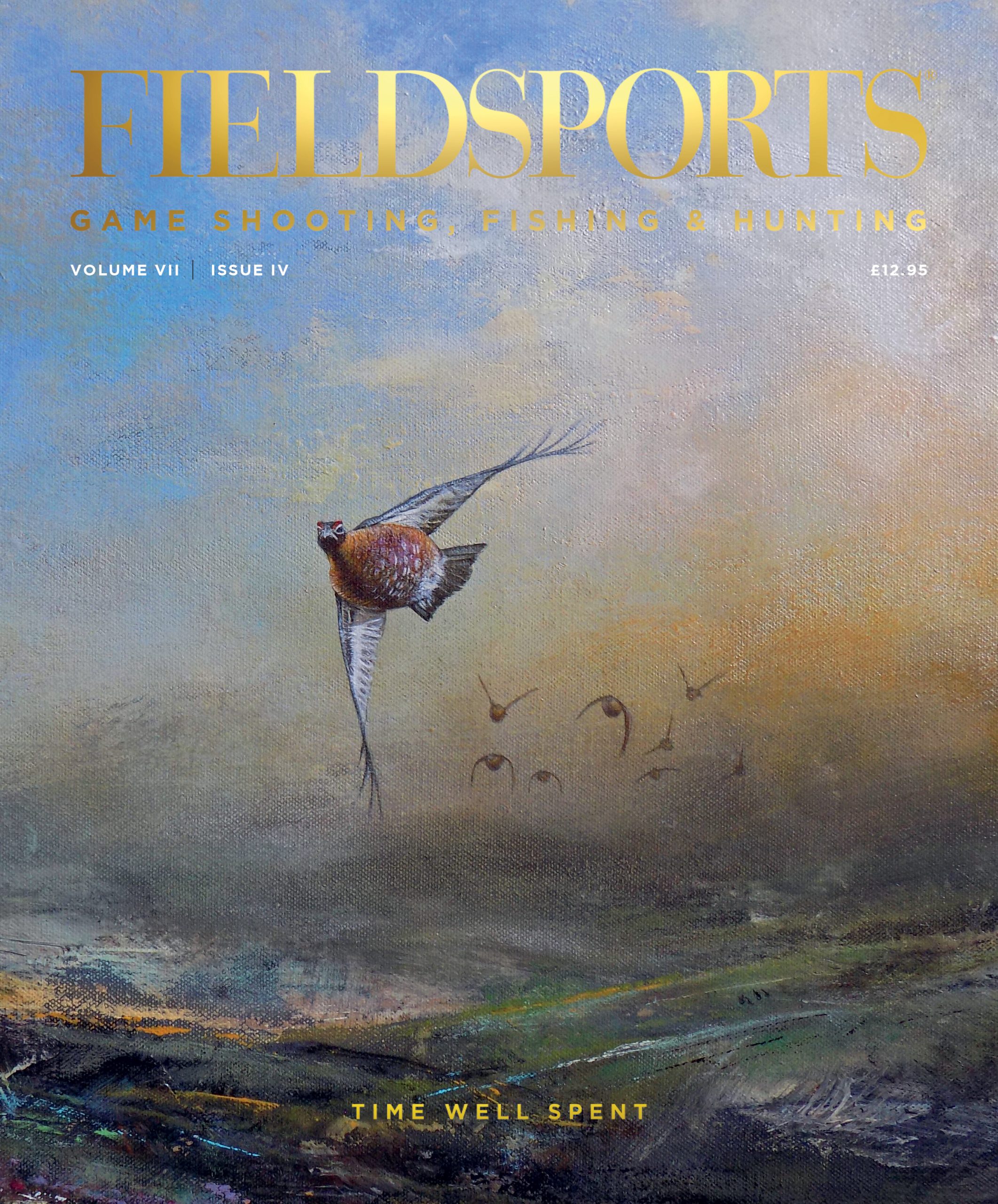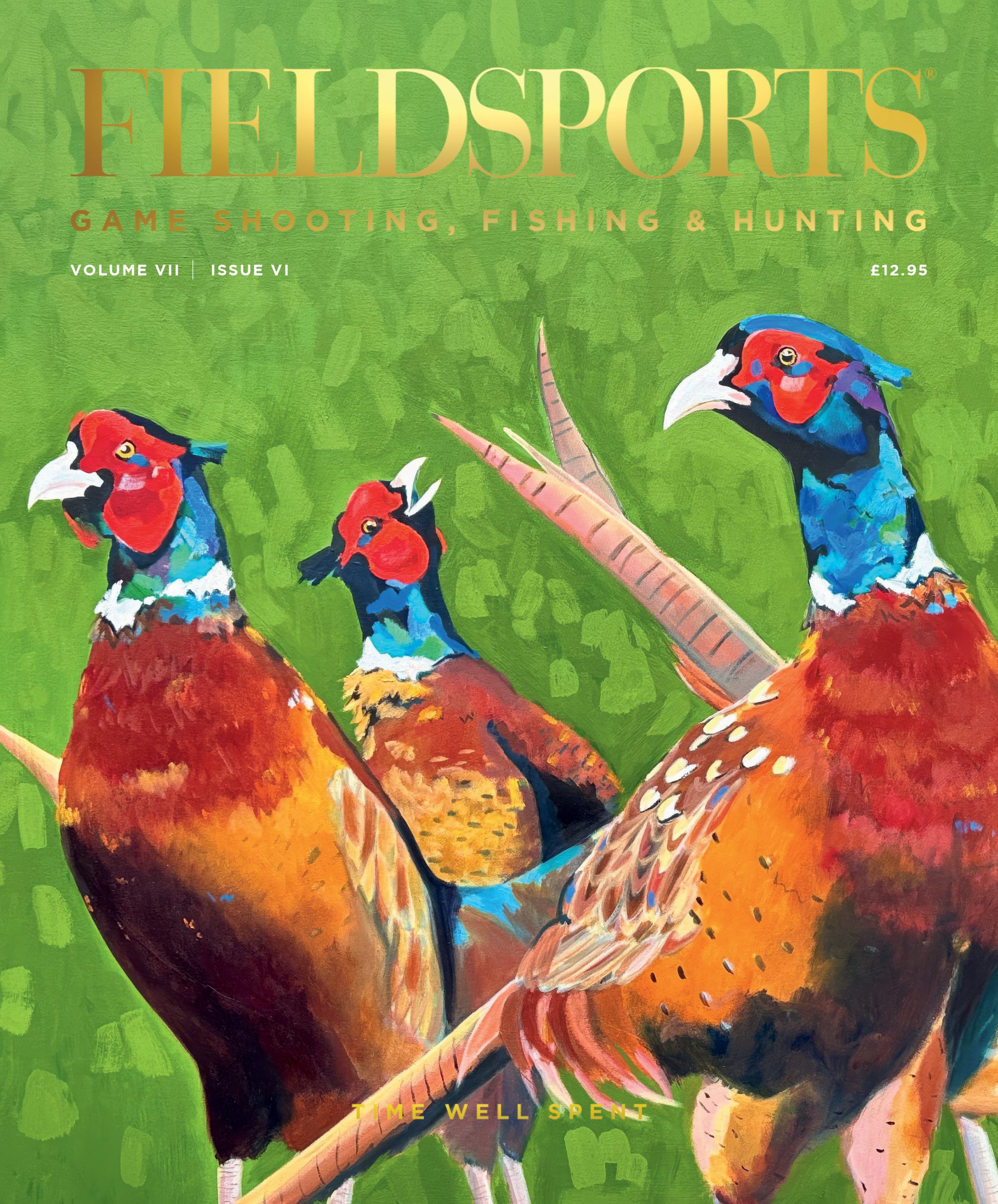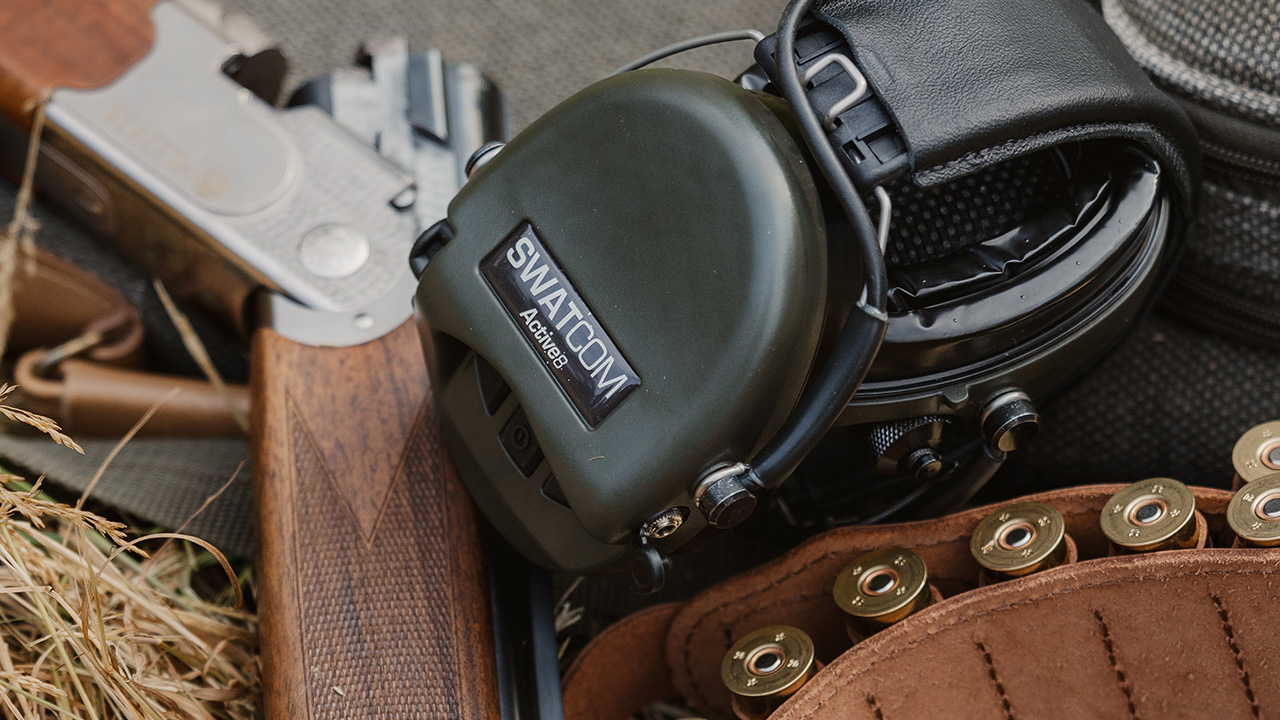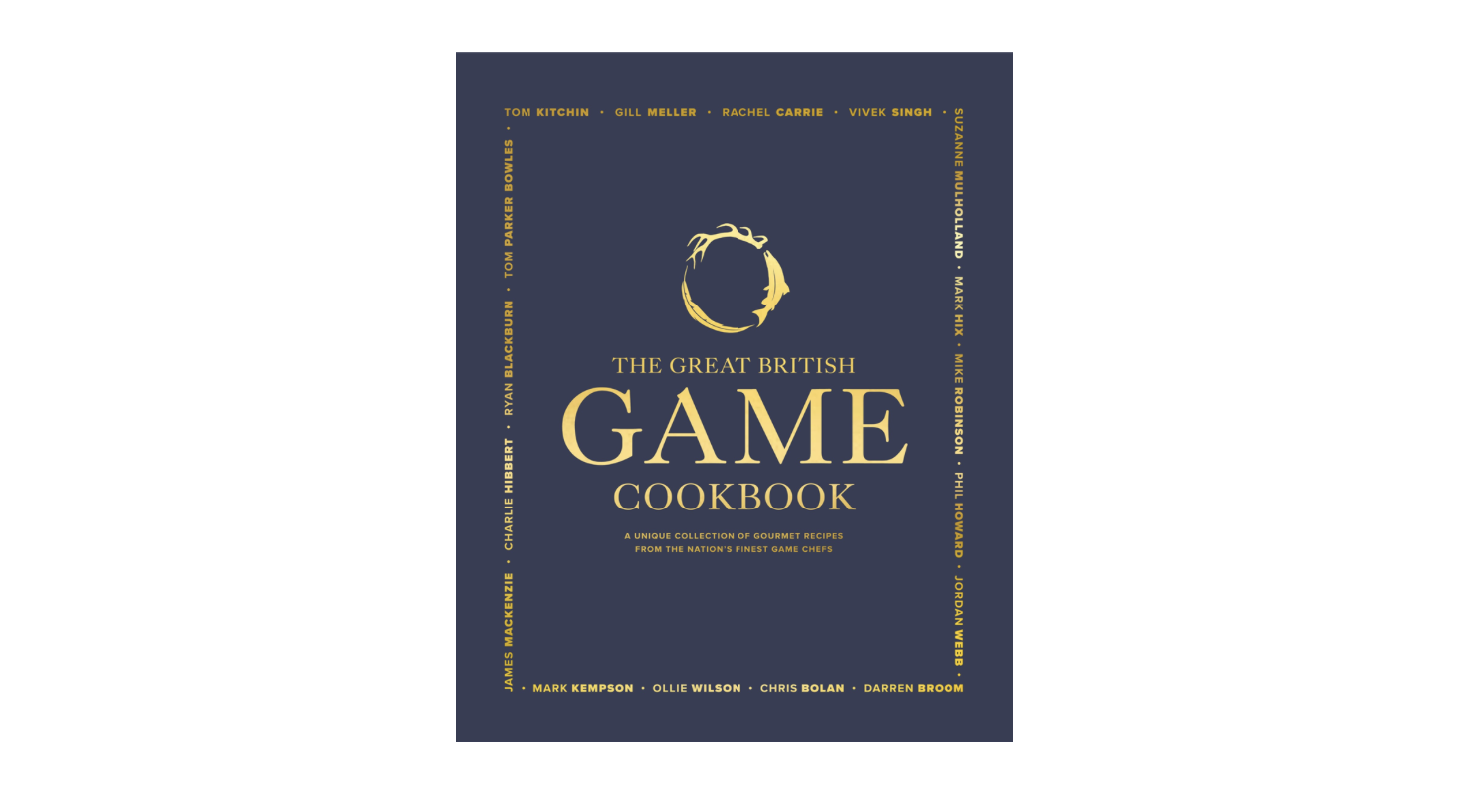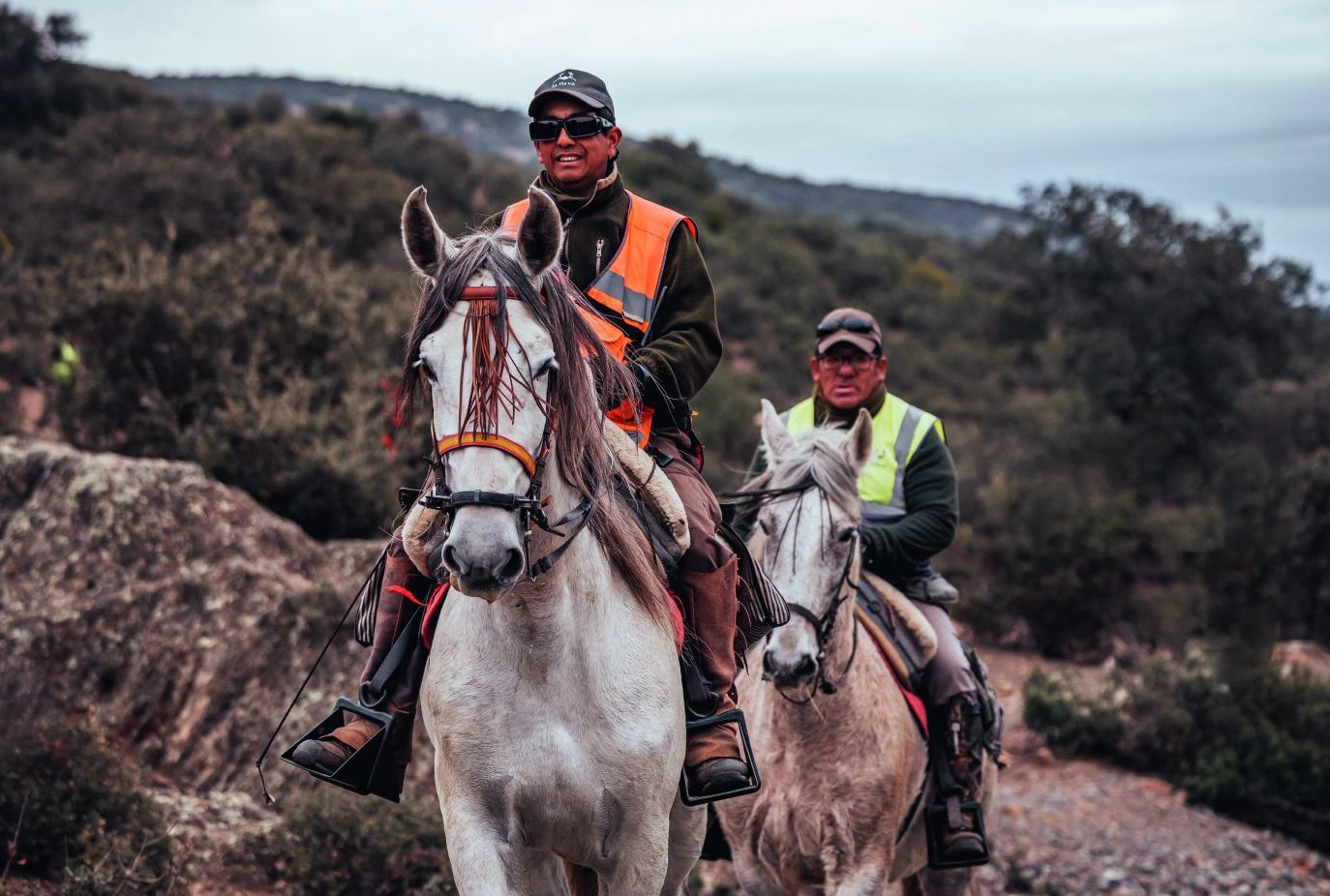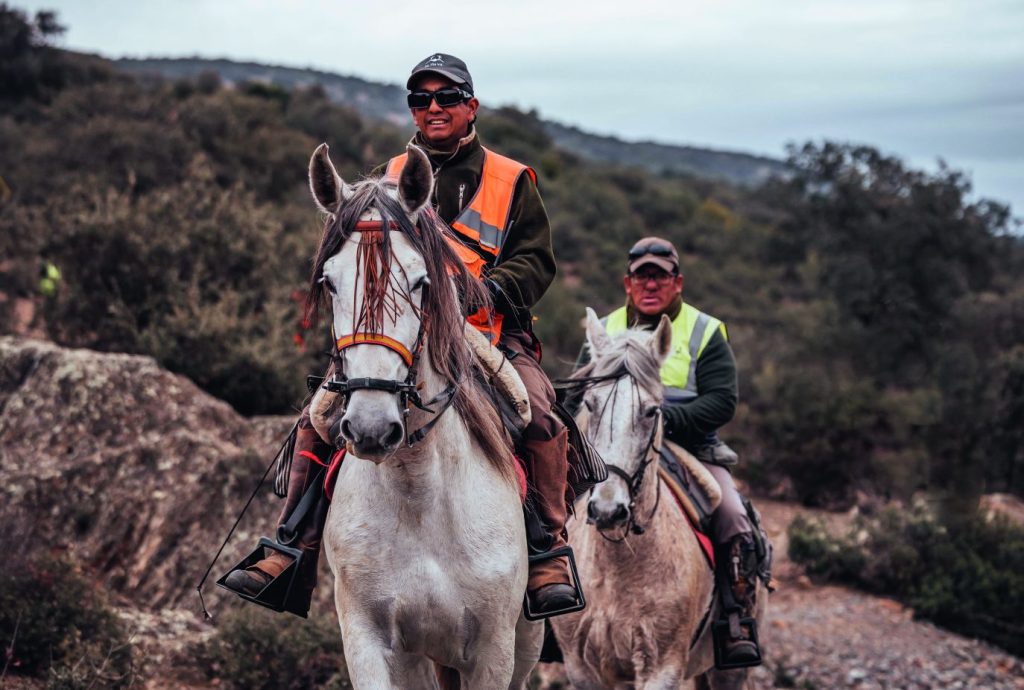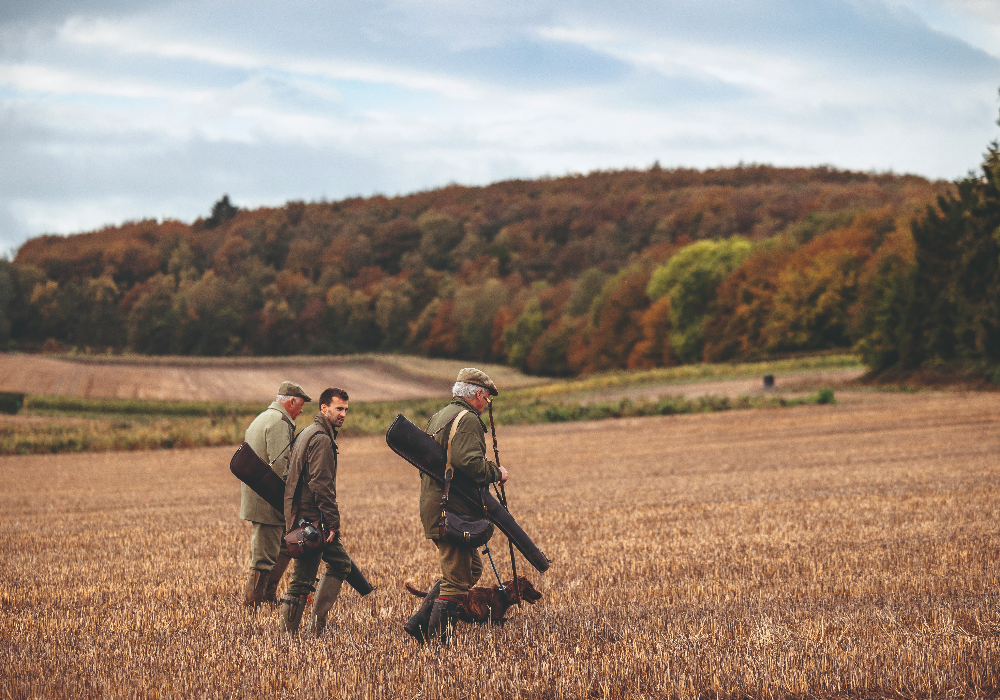Lead: A poisonous issue
Waitrose is the largest retailer of game in Britain. Communications manager John Gregson wrote the supermarket’s controversial policy on selling game shot with lead. As a keen shooter, he understands the subject well.
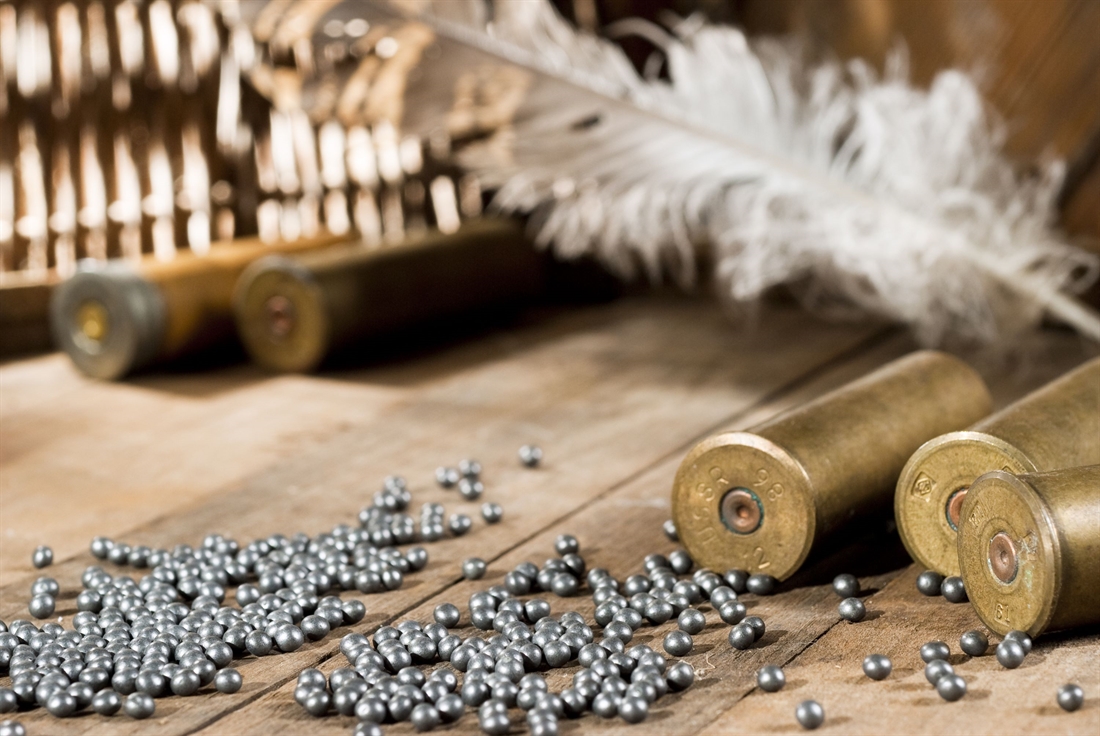
I work for a food retailer – Waitrose to be exact – but this article is not an advertisement for my employers even though I do think we’re very good at what we do.
Last year we caused a bit of a stir by announcing that from this season we wouldn’t be taking any game brought to bag using lead shot. Unfortunately, the disruption from the COVID-19 pandemic has meant we have had to move our deadline to next year, but our pledge stands.
I’m going to put up my hand right here and admit that I was responsible for that policy coming into existence and am unashamedly proud that it has begun to drive proper debate and some commitment to change in the shooting world. Before you get all riled up about ‘bloody businesses interfering with things they don’t understand’, I do understand about lead shot and it has scared the behoovers out of me for a long time; but I didn’t always feel that way.
During the 90s I edited Shooting Times magazine and we weren’t always overly keen on the idea of getting rid of lead shot – despite the fact that the debate was raging even then and had been since the 1980s. Several of my most popular contributors back then – men who grew up in the years after the Second World War and became household names to generations of shooters – held no interest in getting rid of lead. They would have defined themselves as countrymen rather than conservationists and although there is nothing wrong with that, they were of their times – which have long since past. In their view, lead worked just fine, it killed cleanly and that was that. Any disagreement with that view – any suggestion that lead might be an issue – was dismissed out of hand.
I published what they wrote, the readers loved it and everyone was happy. Then I met a man called Worth Mathewson who hails from South Carolina in the USA, but lives most of the year in Oregon. Worth is an accomplished author, a keen naturalist with an enormous life list of bird species as a result of his ‘twitching’ and a mad keen wildfowler. I was blessed to travel with Worth on several shooting trips to the USA and Canada – on one notable occasion with my friend, the English author and shooter John Batley – who has been a brave advocate of the move away from lead shot and deserves much credit.
Back in those days it was accepted wisdom that alternatives to lead shot were either rubbish or were capable of catastrophically damaging the guns in which they were used. Although I saw Worth shoot the occasional lead load – mostly using up a stock of Remington Kleenbore cartridges that he MUST have had since the 1950s – the majority of the time he shot Federal steel loads, and he used them very effectively. What’s more he shot – to use a popular phrase in the states – vintage English doubles – along with some American classics. He had a full choke Parker that he often used with steel and a sleeved Webley & Scott back action sidelock that was new when Queen Victoria was middle aged; he used steel in that too.
He was also vocal – more than anyone I had ever met – about what we would now call our environmental responsibilities as shooters. He clearly saw his place in nature as not just a harvester of game but also a protector of the environments in which he moved and took his leisure. His arguments were compelling. Lead is a poison, shooters should have nothing to do with it, the alternatives work fine, move on.
I left the magazine more than 20 years ago and have only seen Worth a handful of times in those intervening years but his words – and his attitudes – have stuck with me. I haven’t always practised what he preached about lead having no place in the shooter’s armoury, but I have tried.
From magazines, I moved into the very serious world of food retailing. And it quickly became apparent that it was a world populated by some immensely clever people who spent much of their time making sure that they not only kept their customers safe, but that they also kept the businesses they worked for compliant in the jungle of rules that govern the sale of food. I was flung into a world of technologists, chemists, microbiologists, compliance officers, primary authorities and product developers. All striving to make great, safe and nutritious food.
Ever since Sweeney Todd became an unwanted supplier to the pie trade, customers have wanted reassurance about what they were eating. Between 1820 and 1860 attention was drawn to the issue of food adulteration, resulting in the 1875 Sale of Food Act. The Act established two principal offences, the mixing of ‘injurious ingredients’ and ‘selling to the prejudice of the purchaser a food not of the nature, substance or quality demanded’.
We, along with other professional food retailers, were established to supply clean food to Londoners of the day. And this is one of the main roles all good food retailers continue to fill to this day. You cannot run a food business well unless you are utterly obsessed with your trade and determined to offer your customers the very best.
The retail game market in the UK is buoyant – as is the export market – and over the years there have been many industry initiatives aimed at encouraging consumers to enjoy tasty, lean game meat. Game is a darling of chefs and rightly so. It is lean and nutritious and comes from birds that, when reared well, are as free range as you could wish for.
Most game processors also do a great job of readying game for retail sale. Only the best birds are used – those that aren’t carrying too much shot damage, that are clean and haven’t been gnawed by a less than soft mouthed Fido – and they must be handled with care. That means that the shoots that supply game for retail sale must adhere rigorously to all veterinary medicines regulations, have a proper cold chain in place for shot birds and must be prepared to maintain that chill chain as long as the birds are in their charge. Carcasses must be collected regularly and then handled in the same way any food ingredients are – with expertise by professionals. There is no space in the world of food retailing for amateurs who don’t understand food safety.
And this is why lead is a problem. The game that we shoot when we line up should always be viewed as a food ingredient. If it isn’t, why are you shooting it? Go and shoot clays instead.
Many of you reading this will be livestock farmers and will understand exactly what I’m getting at. For example, animal cleanliness is not just a pre-requisite of the show ring, it is important for food safety. You don’t want anything hanging around that may sneak into your food and cause illness; muck is a good example. Another good example, in my opinion, is lead.
Now lead isn’t going to cause you the quick fire misery of a dose of ecoli or listeria, but it isn’t going to do you any good either. It is a neurotoxin with ‘no accepted safe limits’. Serious academics such as Professor Debbie Pain and Professor Rhys Green at Cambridge University have produced compelling evidence that the long term effects of consuming lead shot are not exactly wholesome and hearty. I urge you to seek out their work online. Please don’t fall into the lazy trap of labelling them as ‘antis’ – Rhys used to work for the Game Conservancy Trust in the days of the great Dick Potts and both are serious thinkers. Debbie was recently the guest on BBC Radio 4’s hugely popular The Life Scientific.
If you still don’t want to listen, just have a quiet think about why lead is no longer in paint, petrol or water pipes. It’s not because they found more economical alternatives. It’s because people became sick and died.
As well as the impact on human health – go and have a look what the Food Standards Agency says about consuming game shot with lead if I still haven’t convinced you – there is the impact on wildlife and the environment. In Europe, according to figures from the good folks at the Wildfowl and Wetlands Trust, around a million water birds a year die from lead poisoning, mostly caused by the birds confusing spent lead with grit and ingesting the pellets. What’s more, I’m not sure we should be overly proud of all the lead that is left in the environment in shooting hotspots.
However, the good news is that shooters around the world are already distancing themselves from lead. In the USA, California has banned the use of lead ammunition, Denmark began to move away in the 90s and will implement a complete ban by 2023. Many other countries are making similar moves and, frankly, it’s about time. The first evidence of the toxicity of lead shot came to light at the end of the 19th Century – we’ve hardly been rushed into a corner.
And the technology is increasingly meeting the need for effective and reliable ammunition. Tough, compostable eco wads are now available to cushion hard steel loads while standard pressure steel loads are increasingly available for use in lighter, older guns. As demand increases, so will the choices available to shooters who want to change. I know there are technological issues around the development of smallbore steel loads, but these will be overcome. There is a truly bright future without lead if we choose to embrace it as responsible sportsmen should.
It’s worth hearing from Europe’s biggest game processor. One of the founders of that business told me that, despite the enthusiasm for change coming from many estates, the attitudes of many of their UK shooting customers are making change difficult and, frankly, putting the future viability of commercial shooting at risk. He told me: “I feel genuine frustration because the need for change is falling on deaf ears in too many cases. The world is changing at blinding pace as retail customers demand an environmetally responsible approach to business. And yet so many in shooting are reacting slowly, sticking their heads in the sand or worse, claiming that lead isn’t a problem. If we lose the market for shot game because of a refusal by some in the sport to embrace a relatively small change, it will be our own fault.”
Sobering stuff but a view that reinforces my earlier points. In a nutshell, If you shoot on a commercial estate, you are actually not just enjoying a day’s sport, you are part of the food manufacturing industry with a responsibility for ingredient integrity and safety. A poison like lead must have no place in any food supply chain – it’s potentially injurious to human health, kills non-quarry species and is an environmental pollutant. If we want to increase game sales – as we all do – we must have forefront in our minds the reputation of game as a wholesome and healthy meat; the presence of lead is a significant blocker to that ambition. And finally, shooters must accept the fact that because not everyone is thrilled with the idea fieldsports, we have to continually justify and explain what we do. That task is made a whole lot easier if the arguments we have to counter are solely based around a moral debate on shooting live quarry. It becomes a very different and enormously more difficult conversation if, through a lack of responsible action, we allow shooters to be easily portrayed as careless environmental vandals out of step with a world increasingly concerned about the legacies and impact of all human activity.
Related Articles
Get the latest news delivered direct to your door
Subscribe to Fieldsports Journal
Elevate your experience in the field with a subscription to Fieldsports Journal, the premium publication for passionate country sports enthusiasts. This bi-monthly journal delivers unparalleled coverage of game shooting, fishing and big game across the UK and beyond.
Each issue offers a stunning collection of in-depth features, expert opinions and world-class photography, all presented in a timeless yet contemporary design.
Save 10% on shop price when you subscribe, with a choice of packages that work for you. Choose from Print & Digital or Digital only with each journal delivered directly to your door or via the app every other month, plus access to past issues with the digital back issue library.
